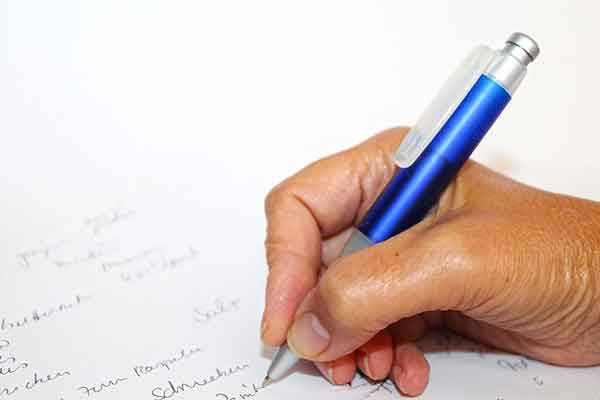Why is taking notes beneficial to a student? Taking handwriting notes is an essential part of learning for the student. It allows you to retain information, and it also helps you as a student organize your thoughts.
Not only are taking notes beneficial, but they can also help you learn more quickly. Most importantly, taking notes can help you improve your concentration and memory.
Notes can be a very helpful tool for students and teachers. Not only do taking handwriting notes to help you remember the material. But it also helps you organize and think about the material.
By having a specific note-taking routine. You can better organize your thoughts and learn the material more effectively.
Additionally, taking notes can make studying more fun. When you have a routine for taking notes, it is easier to stick to that schedule and stay on track. Here are some reasons why taking notes is beneficial for students.
Why is Taking Notes Beneficial to a Student
Contents
Importance of Taking Notes Beneficial to a Student

When it comes to note-taking, there is a lot of importance placed on it. No one knows how important note-taking is for successful work life.
Note-taking is essential to a successful career, from taking notes during meetings to ensuring that all-important work is documented.
In fact, many people believe that note-taking is one of the most important skills you can possess.
It can also help you retain information for more extended periods of time. Not only will taking note of what you learn to make studying easier, but it can also prevent you from forgetting important information.
Related: 10 Best Laptop For Taking Handwritten Notes
Why is taking notes beneficial to a student in 2024
Here are seven reasons why taking notes is beneficial for students:

1. Notes should be helpful.
Notes should be helpful for two reasons. First, they can help you remember what you’ve learned. Second, handwritten notes can provide feedback on your homework.
This is especially important if you’re trying to improve your skills or if you want to get more out of your classes.
2. Notes should be organized.
Notes should be organized in a way that makes them easy to access and read. The best way to do this is to break the information down into smaller, more manageable chunks.
This will help you focus on the task at hand and not get overwhelmed by a large amount of information.
Additionally, it’s important to make sure your notes are adequately marked so that you can track your progress and make changes as needed.
3. Notes should be interesting.
Notes should be interesting for students. If they’re not, they’ll quickly become tedious. Notes should also be helpful for students, as they can help you focus on the task at hand and get feedback from other classmates.
Keeping notes interesting for students is an important part of any note-taking process. This means that the notes must be engaging and exciting enough for them to want to keep reading.
4. Notes should be easy to read.
Notes should be easy to read and understand so that you can remember them easily and retain them for later. If you can’t read them, chances are you won’t be able to remember the information they contain.
Additionally, it can be challenging to focus on a task when trying to make notes in a hurry. It’s essential to make sure your notes are easy to read and that you can easily understand them.
5. Notes should be helpful for students.
Notes should be helpful for students. If you’re not using them, you’re wasting your time and your students’ time. Notes can be extremely helpful when it comes to learning.
They can help you remember what you’ve learned, and they can also give you feedback on how you are doing.
6. Keep your notes consistent with the rest of your class.
Notes should be consistent with the rest of your class. When you make a note, think about the information you want to remember and how you want to remember it.
For example, if you’re taking notes for a test, ensure that the information you’re recording is consistent with the material you will be tested on.
7. Use notes to improve your teaching skills.
Notes can be a very helpful tool for students. Not only are note helpful for remembering information, but they can also be used to focus on a task and get feedback from other classmates. Keep in mind some things when making the most of your notes.
First, make sure you use notes to improve your teaching skills. You can use them as models or even as actual textbook material. When you’re trying to teach a new subject, it’s helpful to have a model that you can reference. Notes can also be great for giving feedback after class.
In addition, for tasks that need to be completed in order for the class to learn, use notes. For example, if you’re teaching math, make sure all students are working on problems at the same time so that they can get feedback and practice.
Does taking notes help you learn?
Yes, taking notes can help students and teachers. In fact, when you take Notes on My Own (NOTES), you’re actually learning more than if you were reading a book. You can use Notes to answer questions, reflect on information, and develop new skills.
The benefits of taking notes are endless – and they don’t stop there. Not only do you get to learn from the information you take notes on, but you also get to share that learning with others.
You can even give your classmates a copy of your notes to show them as well – it’s a great way to build relationships and promote collaboration.
Conclusion: Why is Taking Notes Beneficial to a Student
Notes can be a very helpful tool for students. They help you remember important information, give you an opportunity to focus on a task, and provide feedback.
However, keep in mind a few things when making the most of notes. First, make sure that you use notes to supplement rather than replace information given in class.
Notes can be extremely helpful when you need to remember something specific. But it’s important to make sure that you use them in a way that is beneficial for both you and your classmates.
Second, don’t forget to take care of your notes – store them in a safe place and make sure that they’re always accessible.
Also Read: How to Take Notes in College with a Laptop
How to Write on iPad With Stylus
How to Convert Handwriting to Text in Word
How to Write on Non Touch Screen Laptop?

Jessica Chastain, holding a Master of Science in Computer Engineering from the Western Michigan University, is the go-to expert at LaptopsGeeks for all things tech. With a robust history of reviewing laptops, computers, tablets, and more, Jessica Chastain has developed an astute sense for identifying the essential ingredients that define the perfect laptop. He brings a personal touch to his work, having personally reviewed and extensively used the laptops featured on laptopsgeeks.com.



